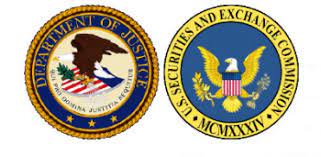DOJ and SEC Secure $41 Million Settlement from Brazilian Airline for FCPA Violations (Part I of II)

The Department of Justice and the Securities and Exchange Commission reached a $41 million settlement with GOL Linhas Aéreas Inteligentes S.A. (“GOL”) to resolve criminal and civil foreign bribery charges.
GOL entered into a three-year deferred prosecution agreement (“DPA”) with DOJ in exchange for payment of a $17 million criminal penalty. DOJ credited $1.7 million of that penalty against a $3.4 million fine that GOL agreed to pay law enforcement authorities in Brazil to resolve charges in Brazil.
Between 2012 and 2013, GOL paid approximately $3.8 million in bribes to foreign officials in Brazil to secure passage of two pieces of legislation favorable to GOL. Specifically, the legislation provided payroll tax and fuel tax reductions that benefitted GOL (as well as other Brazilian airlines).

Interestingly, the bribery scheme was carried out, with the assistance of others, by a member of GOL’s board of directors. To fund the scheme, GOL entered into sham contracts with various entities connected to Brazilian officials. GOL made false entries into its books and records stemming from these transactions. GOL listed the expenses as advertising and other expenses.
DOJ’s resolution did not include appointment of an independent compliance monitor. GOL will continue to enhance its compliance program and will submit regular reports to DOJ and the SEC concerning remediation and implementation of compliance measures.
The DPA settlement includes specific certification requirements. First, at the end of the three-year DPA, GOL’s CEO and CFO are required to certify that the company complied with all disclosure requirements under the DPA. Second, third days prior to the expiration of the three-year DPA, GOL’s CEO and CCO are required to certify that GOL has implemented a compliance and ethics program that is “reasonably designed” to prevent and detect future violations.
Applying the Corporate Enforcement Policy factors, DOJ considered the nature, seriousness and pervasiveness of the offense; GOL received full credit for its cooperation, which included timely providing the facts obtained through GOL’s internal investigation, review of voluminous documents, interview of witnesses, and testing over two thousand transactions.

GOL promptly remediated its compliance program, and implemented an entire anti-corruption compliance program. GOL created a separate compliance department, hired a new CCO, implemented a robust third-party risk management system, and terminated its relationship with all third parties involved in the bribery scheme. GOL also ended its relationship with the member of its board who executed much of the bribery scheme.
As a result, DOJ agreed to a 25 percent reduction off the bottom of the U.S. Sentencing Guidelines. Because of GOL’s financial condition, however, GOL agreed to a reduced penalty of $17 million.















